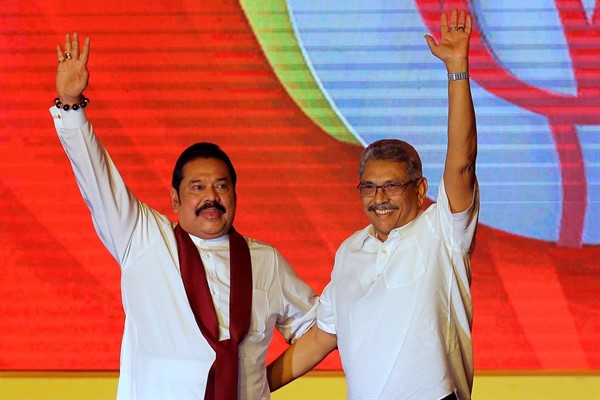Authoritarian populism has returned to Sri Lanka. Since Gotabaya Rajapaksa became the country’s seventh president last November, he has, as many feared, brought back the repressive and undemocratic policies of his older brother, Mahinda Rajapaksa, who was president from 2005 to 2015.
In the first few months of Gotabaya’s presidency, the Rajapaksas—Sri Lanka’s most prominent political family—moved swiftly to centralize power, with Gotabaya immediately appointing Mahinda as prime minister. The two other Rajapaksa brothers, Chamal and Basil, hold important political positions as well; the former is a Cabinet minister, and the latter is both Gotabaya’s “chief strategist” and the national organizer of the Sri Lanka People’s Front, the Rajapaksa-backed political party relaunched in 2016. Gotabaya has also surrounded himself with current and former members of the Sri Lankan military who have been credibly accused of serious wartime abuses during the country’s civil war with the Liberation Tigers of Tamil Eelam, also known as the Tamil Tigers.
With the return of this powerful family and their supporters to power, a climate of fear has returned for Sri Lanka’s dissidents, ethnic and religious minorities, and others. Under Gotabaya’s leadership, the space for dissent has shrunk and self-censorship has grown, while surveillance, repression and intimidation have been on the rise. In a critical statement last month, Clement Voule, the United Nations special rapporteur on the rights to freedom of peaceful assembly and association, warned that lawful peaceful assemblies were reportedly “prevented from taking place, or … met with physical and verbal violence at the hands of individuals, without public intervention.”

